Building an empire in Cambodia – starting wtih pirated CDs
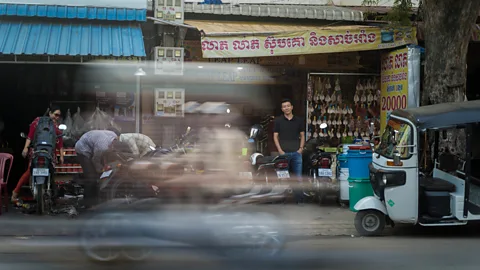 Thomas Christofoletti
Thomas ChristofolettiSerial entrepreneur Chy Sila grew businesses in Cambodia for a growing middle class. Photos by Thomas Cristofoletti.
 Alamy
AlamyCambodian entrepreneur Chy Sila was born in 1974, one year before the Khmer Rouge took over the country. At 18, he was fresh out of university, working as a tour guide.
He wanted to be a lawyer, then an architect. Then in 1998, he began his life as an entrepreneur, starting the first of his many, increasingly successful ventures.
As Chy has grown his businesses, he has collected many meaningful objects along the way. All of them tell the story of his journey through life, and also reflect upon Cambodia’s growth as a country in which opportunity has opened.
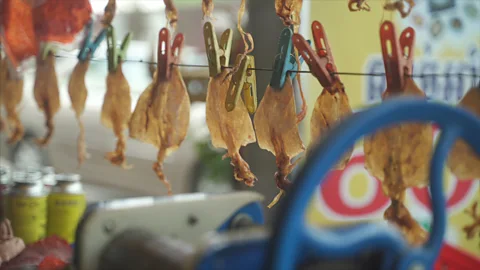 Thomas Cristofoletti
Thomas CristofolettiOver the last 20 years, Chy’s accomplishments have paralleled Cambodia’s increasing openness to foreign business and economic growth. The country has averaged 7% in GDP growth per year throughout the past two decades. Fast food restaurants, shopping centres and luxury hotels have sprouted in Phnom Penh.
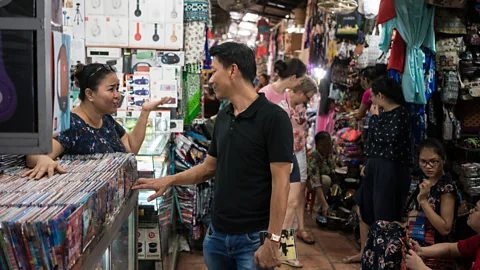 Thomas Christofoletti
Thomas Christofoletti“In 1998, I was working as a tour guide and then decided to start my own business with my childhood friends to make more money,” says Chy. “We were young and we didn’t have much money or experience.”
They thought deeply about the trends and opportunities, and decided to open a shop selling pirated CDs. Although illegal, it was a common business venture at the time, since genuine CDs were too expensive for the local market. Chy estimates that there were 20 or 30 of these stores in Phnom Penh at the time.
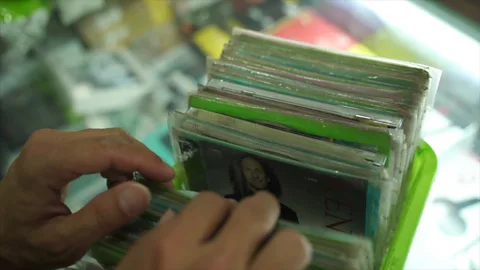 Thomas Cristofoletti
Thomas CristofolettiA customer gave Chy a copy of the Buena Vista Social Club CD – the soundtrack to the popular 1999 movie – and asked him to make a copy. The customer suggested that other customers, like the large number of expats and aid workers, might like a copy, too.
“That’s when I realised we could supply them with music from around the world – the things you couldn’t already get, like Cuban, reggae, French music, classical, hip hop,” says Chy. In two years, he sold almost 1,000 copies of the Buena Vista Social Club. His pirated CD shop became one of the most popular in Phnom Penh.
 Chy Sila
Chy SilaWith his shop built on piracy, Chy wanted to move into a more legitimate business.
He again looked to the emerging trends and saw a newly booming economy in a region with four Asian ‘tigers’ – Singapore, Hong Kong, South Korea and Taiwan – that industrialised rapidly between the 1960s and 1990s.
In 2001, Chy decided the time was right to launch a fast food chain called BB World – or Big Burger World. “We thought it was easy and catchy,” he says.
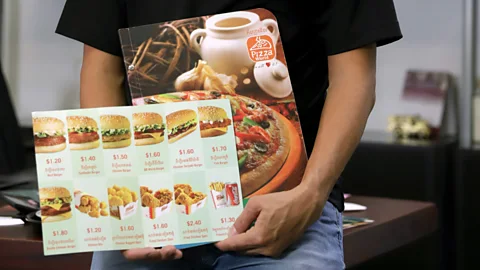 Chy Sila
Chy SilaThe first BB World restaurant was 4,000 sq ft (372 sq m), enormous for the market at that time. But Chy bet that Cambodia’s small but growing middle class – the economy got a big boost in 1999, with 9% growth – would take to the small luxury of a burger and fries.
He was right. Six months later, he opened another BB World in a new shopping centre.
Although Cambodia has yet to gain a single McDonald’s franchise, brands like KFC (a trailblazer in 2008) and Burger King have proliferated.
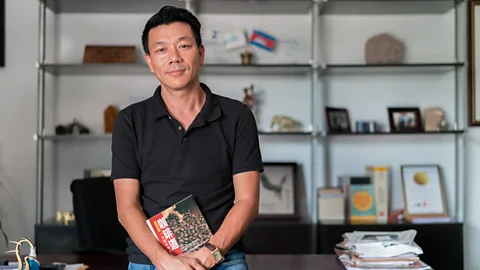 Thomas Christofoletti
Thomas ChristofolettiIn 2003, Chy decided that coffee was the next trend he wanted to tackle in business.
“At the time, there was nothing like Starbucks in Cambodia,” he says. “Coffee culture had been around for years because of French colonialism, but it was all served at cheap roadside stands.”
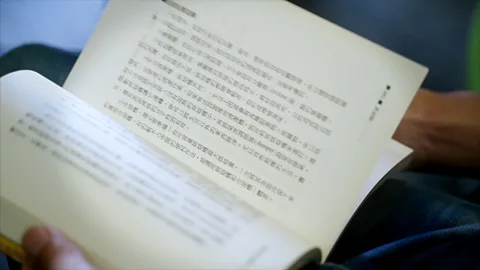 Thomas Cristofoletti
Thomas CristofolettiThe new idea for Chy’s chain, T&C, was to introduce a culture of drinking freshly roasted quality coffee in comfortable air conditioning. “We were looking at selling coffee for $1.50 – or three times the existing market price,” he says.
For inspiration, he bought a number of books about growing, buying, making and selling coffee around the world, including this Chinese book.
The chain was a success, with 12 locations at its peak.
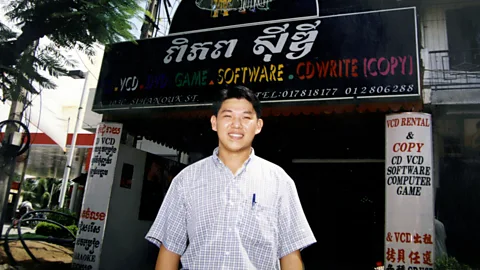 Chy Sila
Chy SilaIn 2007, Chy again changed up his business plan. The internet was booming, though still very expensive in Cambodia.
“People here still didn’t have mobile technology, including smartphones or laptops,” he says. (According to a 2018 Freedom House report, Internet penetration is still low at just 34% in Cambodia versus almost 95% in the United Kingdom.)
Chy bet his money that the next big trend could be online games, starting his company ‘Sabay’ – which means ‘happiness’ in Cambodian. “From my early childhood through young adulthood, it was constant war,” he says. “I really believe the next generation deserves to be happier.”
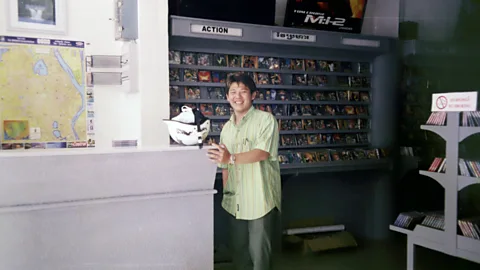 Chy Sila
Chy SilaSabay started out with four people in 2007 and now employs almost 200 workers. Per-capita GDP in Cambodia increased about 70% between 2006 and 2011 – helping to create a larger consumer base for his business. In addition to online games, the media company also owns websites and blogs, produces and distributes movies and television and owns cinemas.
“Our businesses have always been aimed at the middle class, which is a challenge because we still have a big gap between the rich and poor,” Chy says. “We always hope we’ll have more people with buying power.”
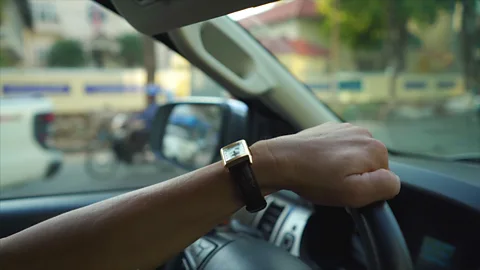 Thomas Cristofoletti
Thomas CristofolettiIn 2008, as Sabay starting generating revenue, Chy decided to buy himself a small gift: the Jaeger Lecoultre Reverso watch that he had always dreamed about. “I’m not a materialistic guy but I spent a lot of money on this,” he says. “It’s my lifetime gift. It reminds me of my hard work and achievement.”
Although the luxury market in Cambodia is still small, the counterfeit goods of yesterday are gradually giving way to the real thing, including a Porsche dealership, Hugo Boss store and the five-star Rosewood Phnom Penh – all of which opened in the last few years.
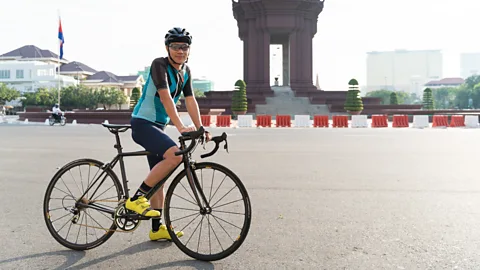 Thomas Christofoletti
Thomas ChristofolettiSeveral years ago, Chy got into cycling when he was looking for something meaningful to do with his spare time. “I have my biking partner and we ride through these small villages that remind me of my childhood. That’s how I maintain a connection to this part of Cambodia,” he says.
He also created the Sabay biking team, which now has more than 20 members. In September, they climbed a mountain in Taiwan. “We have time to chat and get to know each other better,” he says. “Also, cycling really teaches you persistence. It makes you realise you actually can climb a mountain.”
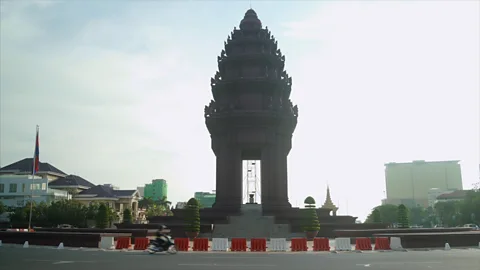 Thomas Cristofoletti
Thomas CristofolettiI remember when I was a child, my mum saved for three years to buy me a bicycle. I never imagined that a bicycle could cost $10,000
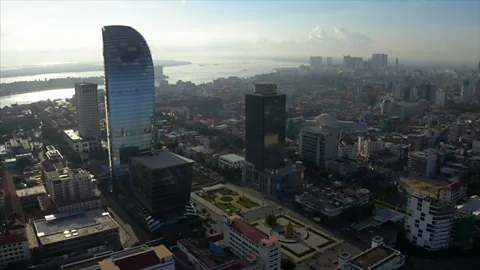 Thomas Cristofoletti
Thomas CristofolettiSince Chy started building businesses 20 years ago, much has changed in Cambodia. There are still challenges for entrepreneurs, including staffing in the absence of STEM-focused education, market size, access to financing and a strong urban-rural divide.
But that isn’t holding Chy back. Sensing yet another opportunity to be a trendsetter, he’s now planning to introduce a dairy industry to Cambodia.
“We still have so much room to grow here. We call this ‘the golden time’,” says Chy. Businesses are opening, there are a lot of young people, and labour costs are still relatively low – plus market entry isn’t that expensive so people can get a start here.”
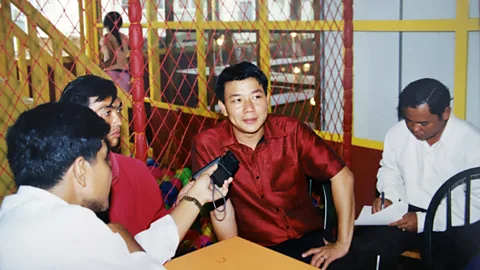 Chy Sila
Chy SilaTo me, it’s always lucky to be a pioneer. You have to challenge yourself to introduce these things to the market but if you make it, you’ll be the leader
